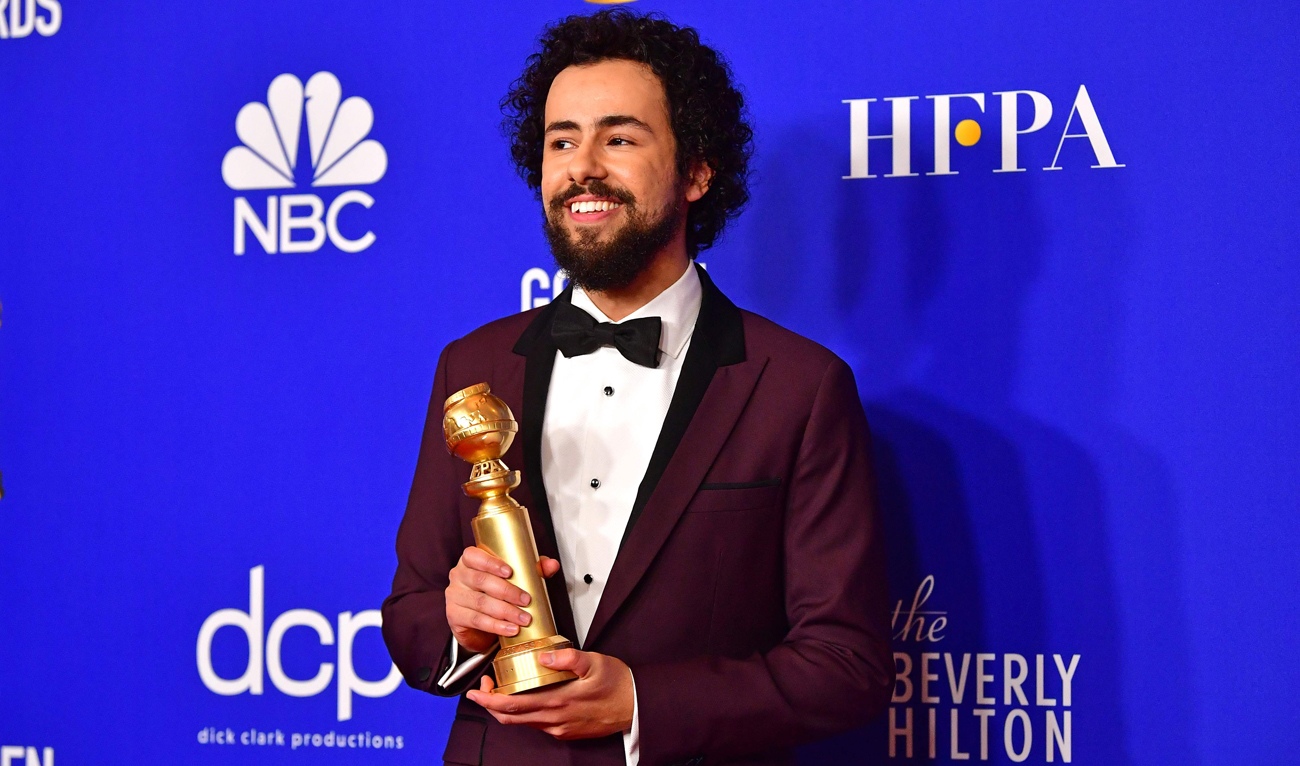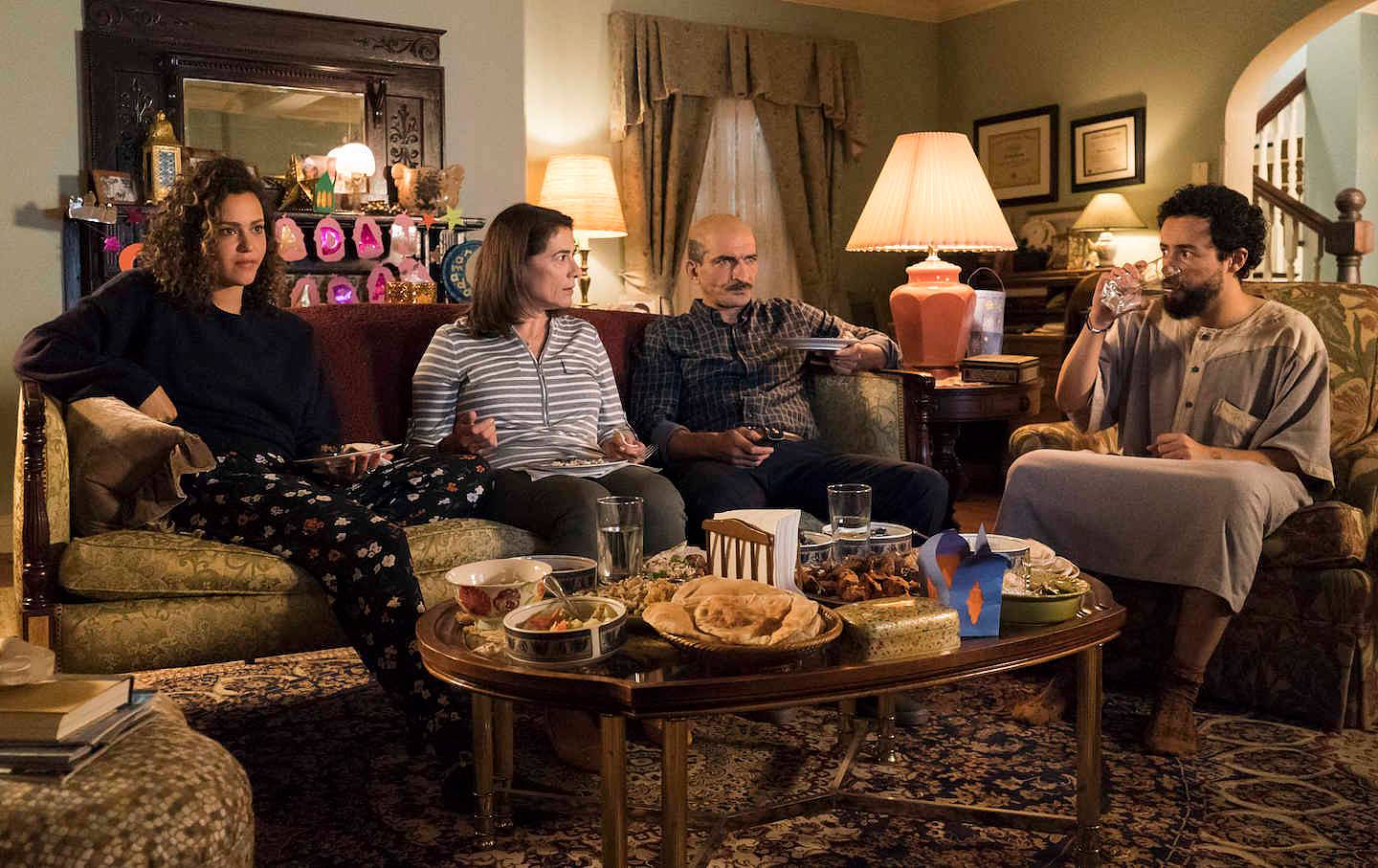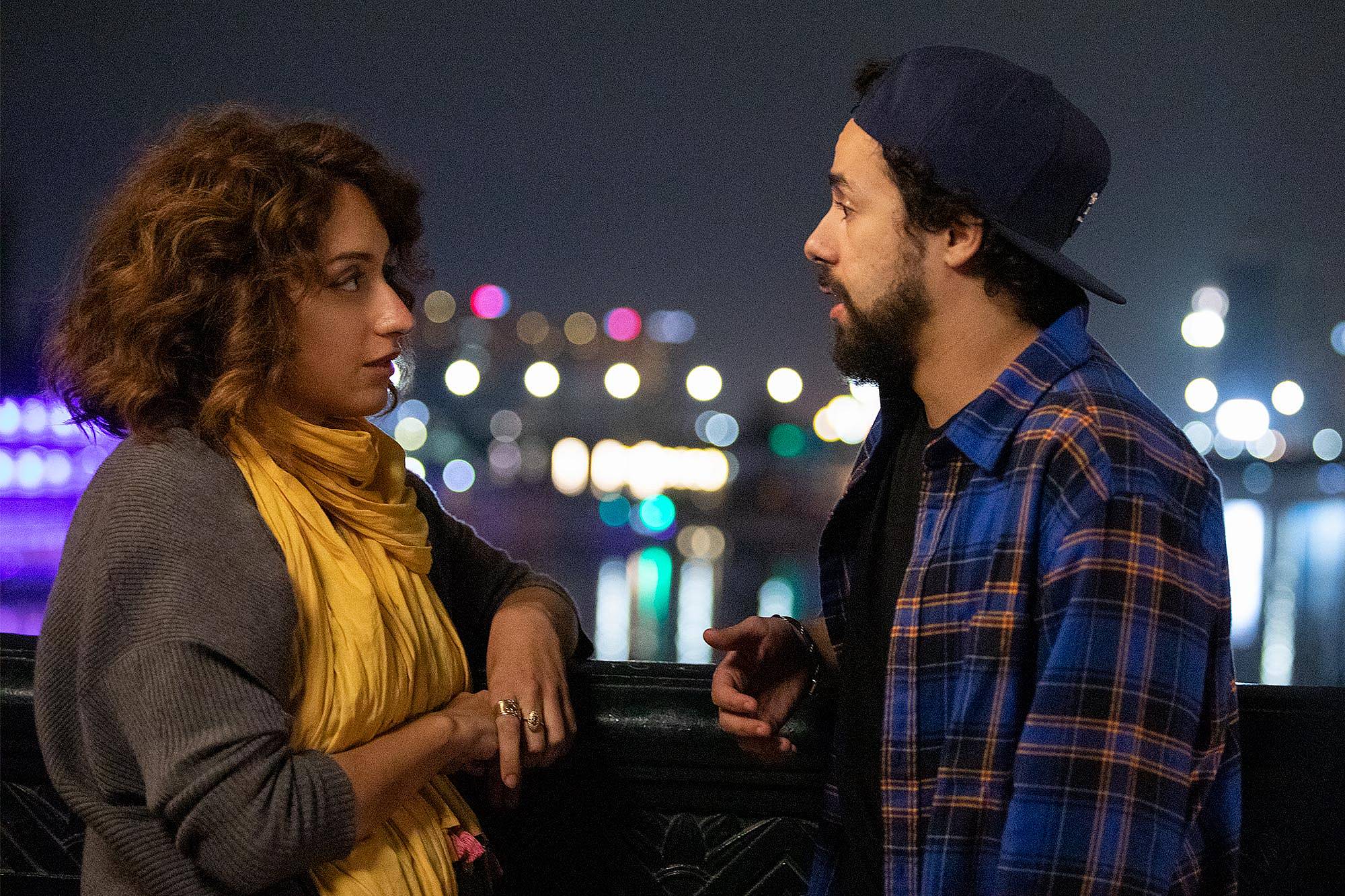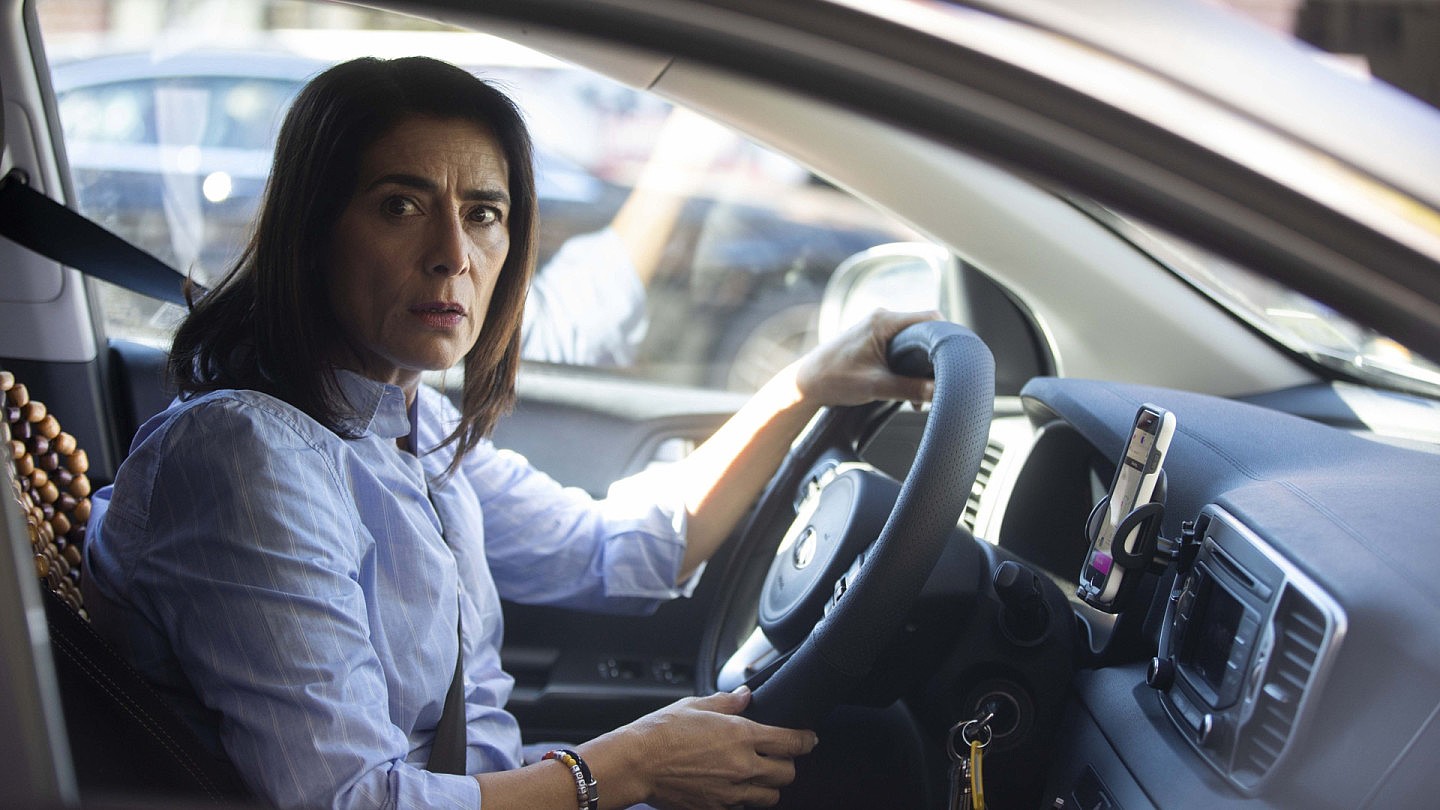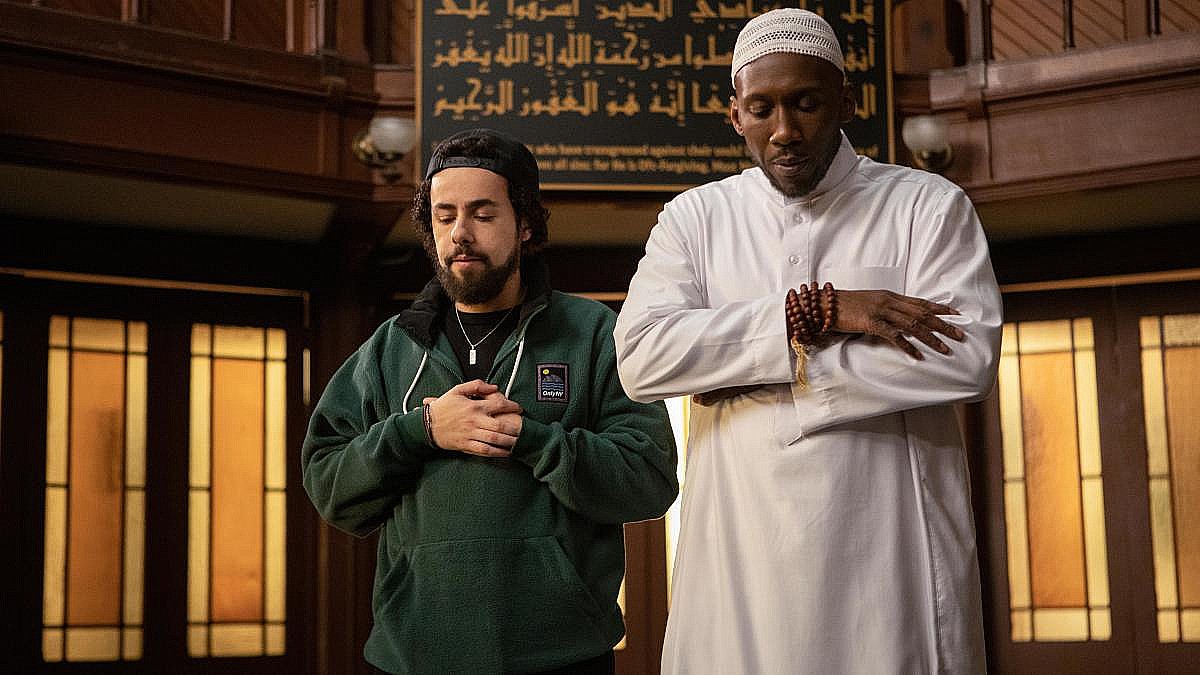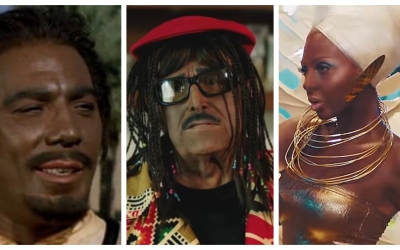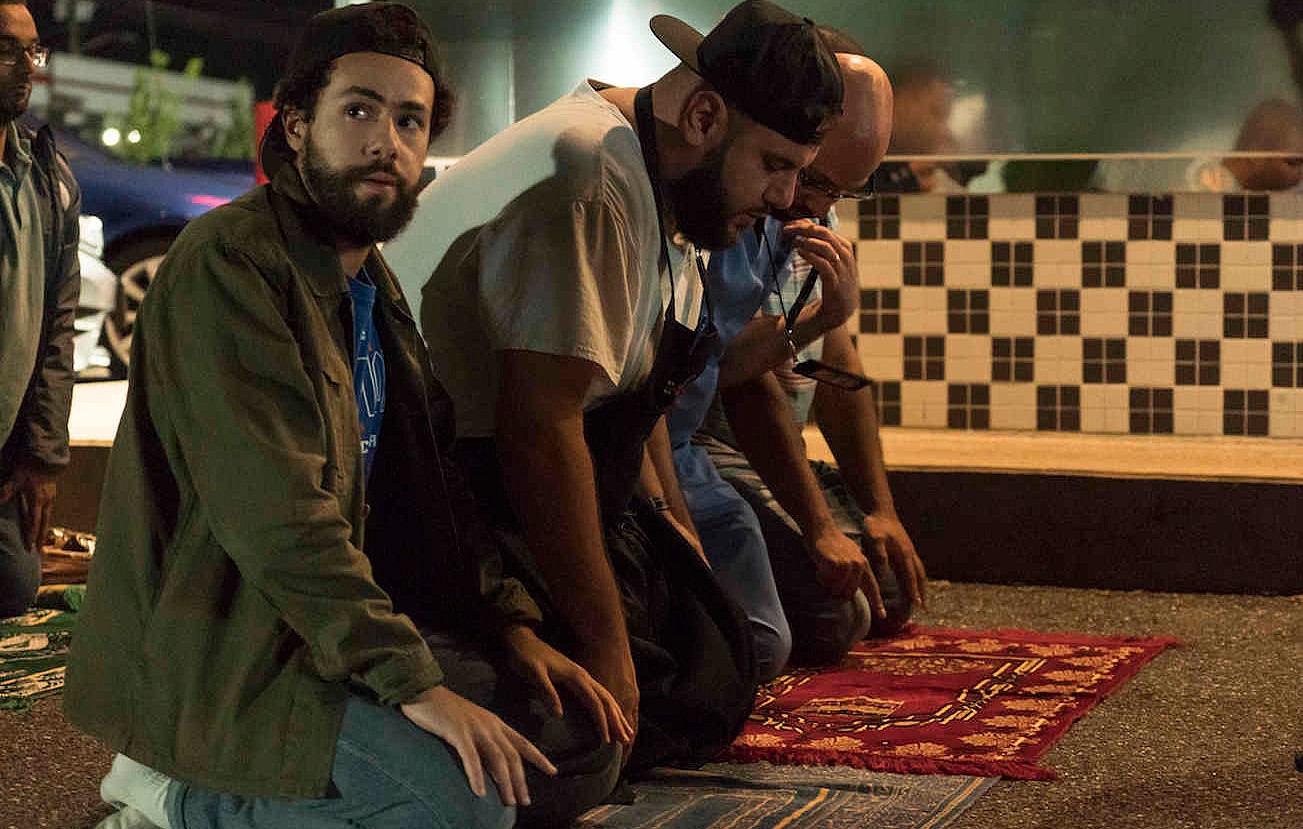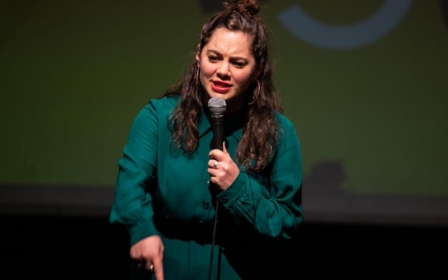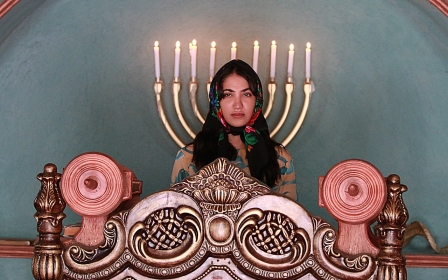The trouble with Ramy: How the award-winning TV show has failed Arab Americans
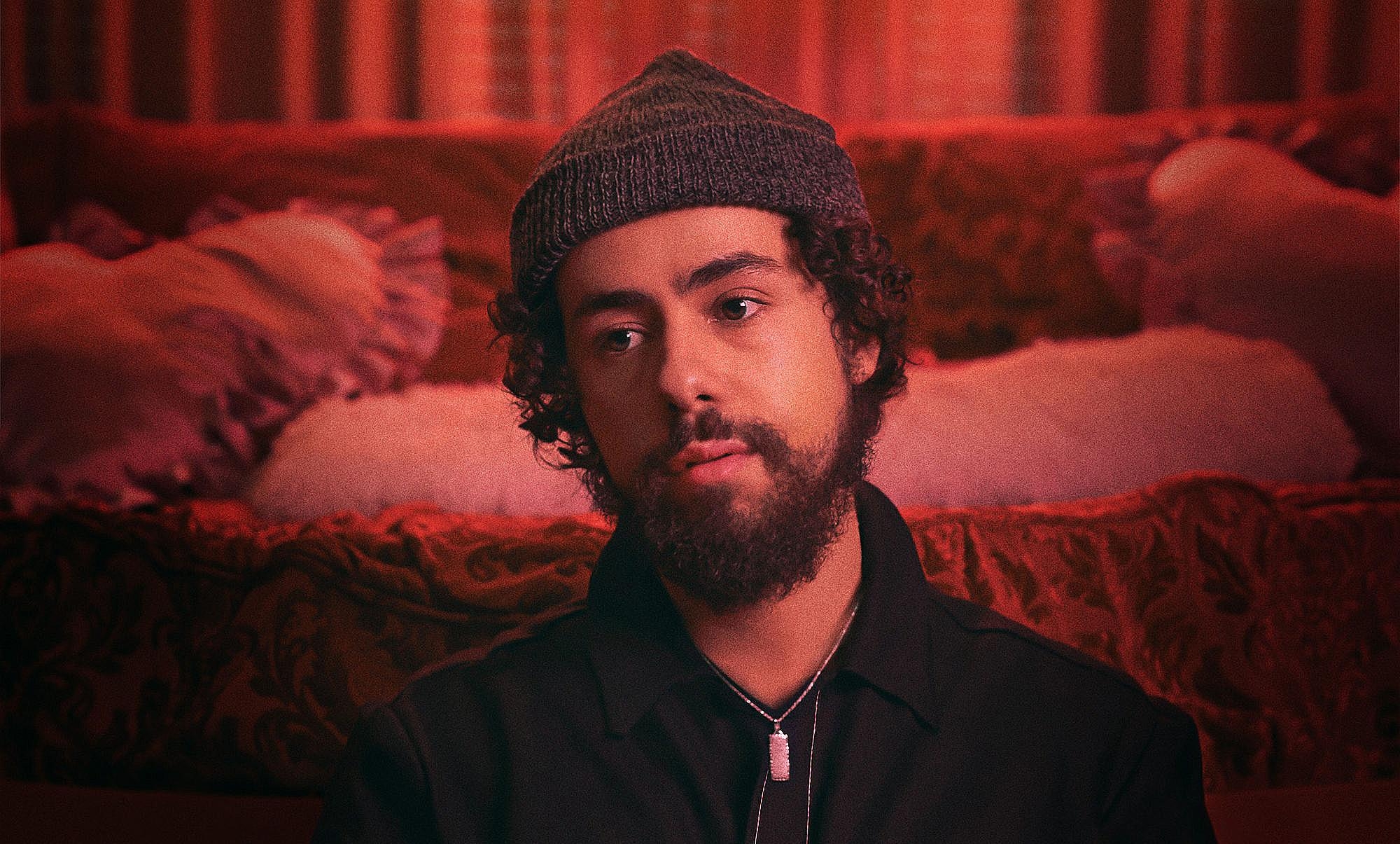
Editor's note: The following article contains spoilers for the first two seasons of Ramy.
In one of the most illuminating moments of Feelings, his HBO comedy special, Arab-American comedian Ramy Youssef opens up about the slippery nature of identity and the ever-present weight of being a person of colour in 21st-century America. “We all lie,” he says. “We’re all afraid of actually being who we really are. We tell these little lies every day, just to get by.”
It seems that for Youssef, the most conflicted part of his identity, the source of the self-constructed web of lies that he cannot reconcile himself with, is his Muslim faith. How can you lead a life of faith in an increasingly secular world? How can you fend off temptation without ostracising oneself from society at large?
The answer, to which all Ramy’s roads eventually lead, is this: stop having pre-marital sex and consuming porn.
New MEE newsletter: Jerusalem Dispatch
Sign up to get the latest insights and analysis on Israel-Palestine, alongside Turkey Unpacked and other MEE newsletters
Sex and Islam are the two driving forces behind Ramy, Youssef’s semi-autobiographical Hulu-produced dramedy series, which made headlines when it debuted in April 2019 as the first mainstream US TV show about Arab and Muslim protagonists.
The show has been a success. Its second season launched in May 2020. It currently has a score of 96 percent on the reviews aggregator Rotten Tomatoes. Youssef himself has won the Golden Globe for Best Actor in a TV Television Series (Musical or Comedy). Earlier this month, Hulu announced that Ramy has been renewed for a further 10 episodes.
The series - which is produced by A24, the award-winning production house behind Oscar-winning best feature Moonlight, as a well as arthouse dramas The Lighthouse, Uncut Gems and Hereditary to name but a few - has been a watershed in the long and thorny history of Muslim and Arab representation by Hollywood as the first show fronted by a cast of fully-realised Arab and Muslim characters who are neither terrorists nor refugees.
In that regard, Ramy is nothing short of revolutionary as a vivid, occasionally piercing panorama of Arab-Muslim lives in post-9/11 America laudably devoid of victimisation; a collection of character studies that brings the flawed humanity of a dysfunctional Arab family to the fore in a fashion previously unseen.
But once the novelty of Ramy’s fundamental conceit wears off, the defects of its writing become apparent. They include muddled spiritual politics; a lack of tangible moral choices; over-simplification of religion; cliches about Arabs and Arab lives; a refusal to engage with politics; and the overall thinness of the material. Beyond the imperative issue of representation, there is little going for Ramy.
How do you solve a problem like Ramy?
Ramy, as introduced in the first season, is a twentysomething layabout millennial residing in New Jersey's large Arab community, who came of age in the shadow of 9/11. The attack on the Twin Towers, it is indicated, was the defining event of young Ramy’s life and may have led him to embrace his Muslim identity in the face of raging prejudice against Arabs and Muslims.
His younger sister Dena, as played by Bahraini actress May Calamawy, is less at odds with her dual American-Arab identity than her tortured brother. Dena, a law student, is a non-practising Muslim, and her ability to integrate more easily than other family members is rooted in her relaxed stance towards Islam.
She stands as a progressive presence, an apolitical free-minded soul whose real struggle in life, as hinted in the episodes where she takes centre stage, is the exoticism and fetishisation she experiences outside her Muslim community. (In season one, a white guy tells her to speak in Arabic while they’re having sex, before suggesting she wear a headscarf as part of roleplay).
Their parents are the kind of Arab immigrants who never successfully adapted to their adopted home. Ramy’s father Farouk (Egyptian thespian Amr Waked) is the average hard-working white-collar family man who has led a life haunted by the fear of losing the religious values of his homeland.
In contrast, Ramy’s Palestinian-born, Egyptian-raised mother Maysa (Palestinian star Hiam Abbass) is more focused on feeding her children and keeping up with the latest pop culture trends than she is protecting them from the moral decadence surrounding her.
Ramy wants to move out of the family home but is not financially independent. His parents will only support him when he gets married. So, he finds himself constantly torn between being a good Muslim and caving in to his desires, namely sex. He can easily abstain from alcohol, drugs and pork: it’s restraining from sex where he consistently fails.
In one episode, Ramy puts it like this:
“I feel I have this hole inside of me that’s always been there. An emptiness. And I’m always trying to fill it up with something, like sex and porn. I feel like the more people I’m with, the more alone I feel. And I tried to fill it with God, but I just don’t know how.”
His jumbled religious identity is a reflection of his equally disordered professional life. After a failed stint at a tech startup, Ramy finds work with uncle Naseem (Laith Nakli), an antisemitic pompous nouveau-riche jeweller who blames Jews for everything that is wrong with America. But for Ramy, a steady job does not mean a more stable, fulfilling life. Like many of his millennial cohort, he is an economically-challenged man-child, suffering from a spiritual vacuum that he persistently tries to fill with sex.
His spiritual journey, as chronicled in season one, is largely confined to rituals: fasting, praying, and not having so much sex. He fails miserably, and after embarking on an affair with a married Muslim woman during Ramadan that his father soon discovers, he heads for Egypt, seeking to reconnect with his wider family roots and lead the holy, sex-free life for which he strives. As he later tells his sheikh: “I went to Egypt and I tried to find something, but I couldn’t.” His quest instantly ends when he winds up in bed with his cousin Amani (Rosaline Elbay).
Aimless and despondent, Ramy’s path eventually leads him to Sheikh Malik (two-time Oscar winner Mahershala Ali), an African-American Sufi imam based in New Jersey who gives him a sense of purpose through discipline, generosity of spirit and compassion. But Ramy's uncertainty and lingering feelings for Amani ultimately block his spiritual reawakening, dragging him back to square one by the end of the second season.
Family values, or lack of them
Ramy is a largely unsympathetic character, intentionally so perhaps. Youssef cuts his hero no slack, insisting that his humanity - and by default that of the Arab-Muslim community - can only shine through his shortcomings and wrongdoings. The intention is certainly apt, yet it fails in its execution. Ramy’s spiritual journey is largely one-note, and one during which he neither questions nor doubts his moral code or his embrace of Islam.
The series acts like an American mainstream show that dares not delve into theology. Thus, while sex and alcohol are cast as the pillars of sinful, unIslamic behaviour the reasons behind this are never questioned nor examined. Sex and alcohol are bad because… because… the scriptures simply say they are.
His sexual exploits aside, Ramy is not faced with any tangible moral choices. His torment is derived from an artificial ideal he strives to become; an ideal, he believes, that could be his portal to happiness, fulfilment and serenity. Frequent questions about God, such as his existence, nature and impact on society, are likewise never challenged.
Ramy's journey, therefore, becomes increasingly superficial and futile as the character grows annoyingly self-indulgent by the end of the current season, wallowing in self-pity and reflecting on his spiritual failings.
Ramy has a generationally dysfunctional relationship with his parents, who want him to marry and have a good life - but that’s it. And his plight pales compared to those of the supporting characters whose stories are more compelling, nuanced and profound. Indeed, the show’s best two episodes focus on each of his parents.
In Ne Me Quitte Pas (episode seven of season one), Maysa, who has spent nearly all her life in America caring for her family, gets a job as a taxi driver to break the rigidity of her life. Socially awkward, she is unable to communicate with her fares, until she stumbles upon a Frenchman for whom she instantly develops feelings.
Impressive in its economy and subtlety, the episode lays bare an estranged woman striving to connect with another human; a fish out of water who cannot confront the disappointment of her vacant life. During its brisk 24-minute duration, writer Youssef and director Cherien Dabis tap into a reservoir of repressed emotions, scorched regrets and thwarted dreams. It makes for a snapshot of quaint domesticity where everyone blindly goes through the motions.
This sentiment and tone is likewise echoed in Frank in the Future, episode eight of season two, when Ramy’s father loses his job, keeps it secret from his family and searches for work. This starting point develops into an achingly delicate exploration of displacement, loss, and wounded masculinity.
Both episodes represent the richest, most reflective hour of the Arab-American experience to appear on US TV screens. Together, they are more honest, realistic and superior in their artistry than the rest of the show combined.
Sufism - and that's it
Youssef has made clear in interviews that the focus of the series is on his Muslim, rather than his Arabic, identity. “I love being an Arab,” he says, “but the reason why I put the religion in there is because everyone can relate to trying to be a good person. That’s why I wanted to focus on him being a Muslim and that he wants to be a Muslim.”
Season two of Ramy runs with this idea, trying to shed light on different facets of Islam via Mahershala Ali’s imam, a charismatic, composed figure in contrast to the habitual portrayal of the fanatical preachers found in Arabic and non-Arabic media alike.
'Ramy' is no less shallow or formulaic in its own way than the average American mainstream TV drama
Sufism is an inclusive aspect of Islam that emphasises introspection, purification and the shunning of materialism. The employment of traumatised war veteran Dennis (Jared Abrahamson) at the mosque illustrates how many who adhere to its teachings follow a hospitable, non-discriminatory stance towards non-Muslims - a side rarely seen in western media.
But that’s as far as Ramy and his writers go in their examination of wider Islam. For all its lofty ambitions to dismantle the stereotyping of Muslims in America, Ramy is no less shallow or formulaic in its own way than the average American mainstream TV drama. Every element of Islam is oversimplified.
Dena’s bafflingly stagnant life is divided between a struggle to attain autonomy from her overbearing family and dispelling the orientalist perceptions surrounding Arab women. Ramy’s friends, including the religiously permissible Mo (Palestinian-American stand-up comedian Mohammed Amer) and the shy, conservative Ahmed (Dave Merheje) are sidekicks with no internal lives. Even the macho, sexist, racist Uncle Nassim harbours a secret that feels like it has been taken from some TV showrunner's manual of mandatory liberal topics to tackle.
The relationships between the various characters are inert, and lack depth and dynamism. Ramy’s relationships with his friends, including the white, non-Muslim Steve (Steve Way) who has muscular dystrophy, largely function as a chorus to his self-pitying.
Wrong turns on Arab characters
The Arab cliches in Ramy are just as trying. There is not one adult Arab in the show who is not a fresh off-the-boat, culturally-insensitive caricature, including Ramy’s parents (save for the two aforementioned episodes).
Even more broad in characterisation is Bin Khalied (Egyptian-Dutch actor Omar Metwally), a wealthy Gulf investor who makes a habit of drinking the breast milk of a retired Lebanese porn star (Mia Khalifa) to cure himself from his sex obsession, before telling Ramy that he sold his own brother to Yemen in a business deal.
Apart from Farouk, all the Arab men featured in the series thus far are sexually-frustrated/sex-fixated dimwits who are torn between acting on their desires and maintaining stable social lives. Women, be they Arab or non-Arab, are boxed into the roles of either sexually-permissible liberals - the cousin, the sister, the kinky blind date (Dina Shihabi) - or observant and religious such as the sheikh’s daughter Zainab, played by MaameYaa Boafo.
Youssef does successfully pepper the show with several spot-on details. There is the evocative use of Egyptian pop music that ranges from classic 1950s tunes and 1980s pop to contemporary rock; how Arab American parents become compulsively addicted to Egyptian soap operas; and the obsession with the shataaf (bidet shower).
Ramy should also be lauded for bringing the cultural side of Islam into the limelight, including fasting, praying, hajj and marriage rituals, although Muslim cultural identity, or rather what it means to be culturally Muslim beyond traditions and customs, remains somewhat elusive and under-explored.
There are also some observant side characterisations, including the chaperone escorting one of Ramy’s dates; and the clingy Egyptians ambushing their American guest’s relatives for gifts. Yet these too play out as mere ornaments to Ramy’s central story.
Equally coy is Youssef’s refusal to engage with politics. The most obvious example is the Egypt-set finale of season one. Youssef briefly, if shrewdly, pinpoints the peculiar rationale behind the Egyptian upper-middle class support for Trump, “a strong man, like Sisi,” as one character puts it, who will safeguard America from the Muslim terrorists. He also touches on the disappointment and loss of the revolutionary generation in the wake of the 2013 coup. But the class’s self-hatred and privilege are brushed over. Eventually, Youssef’s fleeting political jabs become footnotes to a far less interesting narrative.
Even when it comes to the politics of Islam, supposedly one of the main focuses of Ramy, Youssef shies from delving into the growing division between secular and traditional Islam. It’s here where the ideology of the show - if it has any - grows even more muddled.
Judging by the show, Youssef advocates a liberal form of Sufism. As depicted in Ramy, it accepts non-believers and gay and lesbian people, underlining, as Youssef puts it through the words of Amani, the beauty of “giving in” to the Muslim deity. And yet, the religious doctrine followed by Ramy continues to acknowledge that pre-marital sex and alcohol and non-halal food are haram or "sinful".
It could be argued that this simply reflects Ramy’s confusion. But after two seasons and 20 episodes, a coherent discourse about anything is yet to be detected. So, what does it take exactly to be a good Muslim? Refraining from earthly delights and being helpful to others? Praying and fasting and committing philanthropy?
One conclusion is that Youssef is modelling Ramy’s spiritual quest on the work of Martin Scorsese, whose work often treats sex as dangerous and corrupting, symbolising the fall of man. But Youssef’s disjointed treatises do not address ethics. In contrast, such moral conflicts are at the heart of Scorsese’s manifestations of Catholicism in post-Vietnam America. See for example Harvey Keitel’s conflicted Catholic Charlie in Mean Streets; Nicolas Cage’s struggling do-gooder paramedic Frank Pierce in Bringing Out The Dead; or Andrew Garfield’s questioning idealistic priest Rodrigues in Silence.
Betrayal, gluttony and the difficulty of upholding one’s principles in a dog-eat-dog world are what make Scorsese’s films such as Taxi Driver, Casino and The Irishman the timeless, universal classics that they are. Ramy contains no concrete ethical dilemmas beyond sex. The moral conundrums that defined some of the best long-form TV drama of the past two decades - from The Sopranos to Mad Men and Breaking Bad - are absent. Remove Islam and Ramy’s spiritual journey and the result is a spotty panorama of Arab Americans that only occasionally hits the target.
Ramy: An amiable diversion
The most glaring omission in Ramy are secular Arabs and Muslims - a blind spot for nearly every American show that includes Arabs and Muslims. Nowhere in Youssef’s New Jersey do we see any lapsed Muslims or non-believing Arabs, overlooking a large constituent of second generation Arab Americans who grew up without any religious affiliation.
Youssef has stated in interviews that he chose to write and depict the community he grew up in, the community that he knows. “I’m an Arab, so at first at least, I wanted to highlight what I saw and what I knew.”
It might be unfair to ask one show to capture the wide spectrum of the Arab-American or even the Muslim Arab-American experience
There is no denying that Ramy’s story exists. Nor is there any denying how authentic that story is. But the broader Arab-American narrative is far more complex and richer than Ramy’s streamlined anecdotes.
Religion plays different roles in every Arab community, including Muslim ones. Community pressure, power and constructed identities are equally connected to how Arabs use religion in their lives. Alas, Youssef has adopted the easiest, most obvious narrative of the Arab-American experience as the backbone for his show.
It might be unfair to ask one show to capture the wide spectrum of the Arab-American or even the Muslim Arab-American experience. It does break ground in putting our faces on US TV screens as prominently as it does. It also must be stressed that the show still has potential to improve and expand.
As genuine and resolute as it may be, Ramy is nothing more than an amiable, diverting comedy drama with plenty of good intentions, a scrambled vision and too many missteps - and a US mainstream TV show that does little to enrich the Arab-Muslim discourse in America.
Middle East Eye delivers independent and unrivalled coverage and analysis of the Middle East, North Africa and beyond. To learn more about republishing this content and the associated fees, please fill out this form. More about MEE can be found here.


